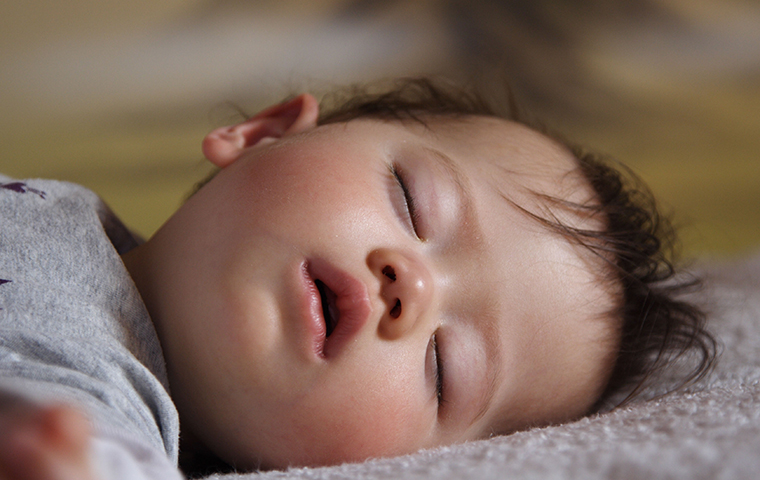Becoming a parent is one of the greatest life-changing events a person can have. There is so much joy in welcoming a child into the world, but at the same time you may experience feelings of sadness and anxiety. This is completely normal! You suddenly have another human depending on you to survive, and that can feel overwhelming.
As you go through this transition to motherhood, it's important to know the changes you'll experience during pregnancy and after your baby is born. Understanding these changes can help you know when you might need to ask for help. In this article, we will:
- Explore what happens to your mind and body during and after pregnancy, and how you can take care of yourself.
- Talk about hormonal changes - chemicals that your body may produce too much of or too little of - that can affect your mood and cause depression or anxiety.
- Discuss how you and others can help take care of your mental health and look for signs of depression.
- Look at how your relationship with your partner may change when you become parents and what you can do to keep that relationship healthy.
The truth is, as mothers, we often struggle to ask for or get help when we need it. Asking for help makes you a good mother, not a bad one. We need to understand what kind of help we need because when we do, it's easier to ask for it.
Recognizing Postpartum Depression
The Mommy Brain
You might have heard the phrase "mommy brain" or "pregnancy brain" used to describe forgetfulness related to pregnancy or after childbirth. Is pregnancy brain real? Yes! Within the first two weeks of carrying a baby, a woman's hormones change. Hormones affect neurons (the information highway) in your brain. After conception, there is an increase in estrogen (the hormone responsible for reproductive development) and progesterone (the hormone responsible for your menstrual cycle and for maintaining a healthy pregnancy).
These changes allow the uterus and placenta to form an increase of blood cells. The placenta is a new organ that your body is creating! Yes, during pregnancy your body is creating a baby and a new organ. That's a lot of work! The increase in hormones usually makes you feel happy, but for many this doesn't happen until the second trimester.
Not only do moms experience forgetfulness, they also experience mood swings. This can be due to hormones but also from just the stress of being pregnant, being tired, and changes in your metabolism. The most common time for moms to experience mood swings is usually during the first and third trimesters. And, of course, they come back after the baby is born. However, mood swings can vary by mom. Below is more information on post-pregnancy hormones.
Change can be challenging, and being pregnant is a big change! Be kind to yourself and understand it's all normal.

Caring for your mental health during pregnancy
Pregnancy is a joyous time for most. With the joy and excitement come changes to not only your body but your brain. This can make you feel very uncomfortable. You may think "Oh no, what did I get myself into?" or "Do I have anxiety?" No matter how excited you were or how much you planned for your baby, it's okay to feel unsure, to worry, and to have some anxiety. This is all normal. A mother may have mood swings in pregnancy, and that's okay too. All of a mom's emotions during pregnancy and even after pregnancy are valid and real.
Don't forget to make time for yourself during pregnancy. Do some things that make you feel good, and enjoy your alone time before your baby arrives. Find ways to practice self-care to help your physical and mental health. For some, it is physical activity. For others, it's quiet time. Do what feels best for you during your pregnancy.
Building a community of friends, family, and trusted adults will also help you deal with the emotional times you will face, both during pregnancy and after. The phrase, "It takes a village to raise a child" often rings true. If you don't have family or friends to help you, think about the type of support you need and ask your pediatrician, OBGYN, or a counselor how to find that support during pregnancy.

Support during pregnancy and postpartum
Setting up a support team during pregnancy can be important to good postpartum care. Postpartum refers to the six weeks after you have your baby. We think of a support team as the doctor or midwife, the birthing partner, or a parent. Some moms hire doulas to be a source of support during pregnancy, labor, and with a newborn, while others rely on family and friends.
When it comes to family and friends, think about what type of support you want and need. You want the help around you to be . . . well, helpful. You have most likely heard stories of family coming to help with a baby and causing more work and anxiety for a new mom! Some family and friends know how to step in and help with the baby or help take care of a new mom. They cook, clean, and do laundry with no questions asked. On the other hand, some friends and family might be more of a burden. During postpartum, mothers need to be cared for just as much as babies. Rely on those who will care for you as a new mother.
Think about your boundaries and ensure your support team includes people you can be honest with. What does setting boundaries look like? Examples of boundaries you may set are:
- Not having visitors until you're ready for help.
- Setting time limits for visits.
- Assigning jobs for each person whom you do want to help you.
Ensuring you have the right help may also help with getting through postpartum depression. Those close to you can help look for signs of postpartum depression, or perhaps help you avoid those feelings.
Need parenting help now?
The Texas Parent Helpline is available 24/7.
- Call 833-680-0611
- Chat with us
- Text 833-680-0611
Find time for self-care and sleep
The little ways you care for yourself add up and can make a big difference in your mental health. Self-care is critical and it comes in many forms. It's not always easy to do, but it is so important! Listen to a podcast, watch your favorite TV show, or read a book while baby naps. Don't feel guilty - invest in yourself. You cannot pour from an empty cup!
It's also important to talk to your partner about how to best support you. Nighttime feedings can be stressful to a mom who is tired. Your partner can change the baby's diaper and bring him (or her) to you for breastfeeding, so you don't have to get out of bed. If you're not breastfeeding, your partner can bottle feed baby and take over an entire shift so you can get more sleep. And don't forget, your partner can do things for you, too! Don't be afraid to ask for a break so you can take care of yourself.
Nursing takes a huge amount of energy and burns a lot of calories, so be sure to drink plenty of water, eat healthy, and try to rest when you can.

Caring for your mental health after baby is born
It's common for moms to feel sad or moody the first few days or weeks after the baby is born. These "baby blues" are normal, and they usually fade away. Symptoms of baby blues may include:
- Feeling sad, moody, or cranky.
- Being unable to make decisions, sleep, or eat.
- Feeling unable to do a good job in caring for your baby.
- Feeling as though you're not bonding with your baby.
- Crying often.
If your feelings of sadness last longer than two weeks, it's time to talk to a doctor. Baby blues that last may be the sign of a bigger problem: postpartum depression. It's important to recognize the warning signs and get help from family and friends. This means sleeping when you can, finding some time (even a little) for yourself, and avoiding alcohol or drugs, which can increase anxiety and depression.
Postpartum depression vs. baby blues
Having the baby blues or postpartum depression can be confusing. If the feelings listed above don't go away for several weeks, then you could have postpartum depression. This doesn't make you a bad mom. Postpartum depression is more common than people think, and there is help available so you can get through it. Postpartum depression signs are like baby blues, but they're more intense. They include:
- Intense anxiety that can cause panic attacks, fear, and anger - sometimes around your baby.
- Feeling like a robot - just going through the motions with little enjoyment about anything in life.
- Feeling hopeless, having despair, and having bad thoughts.
- Crying every day or having scary thoughts that don't go away.
Friends and family may notice baby blues or postpartum depression before a new mother does. Check in on new moms and encourage them to find help if you see them struggling.
You might think postpartum depression is normal and something you need to push through. You might feel guilty for having sad or scary thoughts and may try to hide these feelings from others. Postpartum depression that goes untreated can be serious. Please ask for help from family, friends, or your doctors. Taking care of yourself during this time is important for you and your baby.
Mood and anxiety disorders are best treated with therapy and medications. If you are experiencing thoughts about suicide, feel a loss of reality, or you worry that you may harm yourself or your baby, it is important to seek help right away.

Postpartum Support International has a crisis line (1-800-944-4733) and connects you to providers of mental health care in your area. They are trained in treating mood and anxiety disorders. It's important to note that these problems are not limited to postpartum. Anxiety disorders can show up before your child is born. It's important to seek help because a tiny human is depending on you, and you deserve help!
Pregnancy and postpartum can be among the greatest times of change for the brains and bodies of mothers. Everything shifts - from our relationship with others to our relationship with ourselves. Moms need to care for themselves in the way they naturally care for their babies. It's not only okay but necessary for moms to care for themselves. Knowing what happens naturally in the brain and body is a start.
If you are struggling with mental health postpartum, reach out to Postpartum Support International. Contact the Helpline at 1-800-944-4773 or text English 503-894-9435 Espanol: 971-420-0294.





